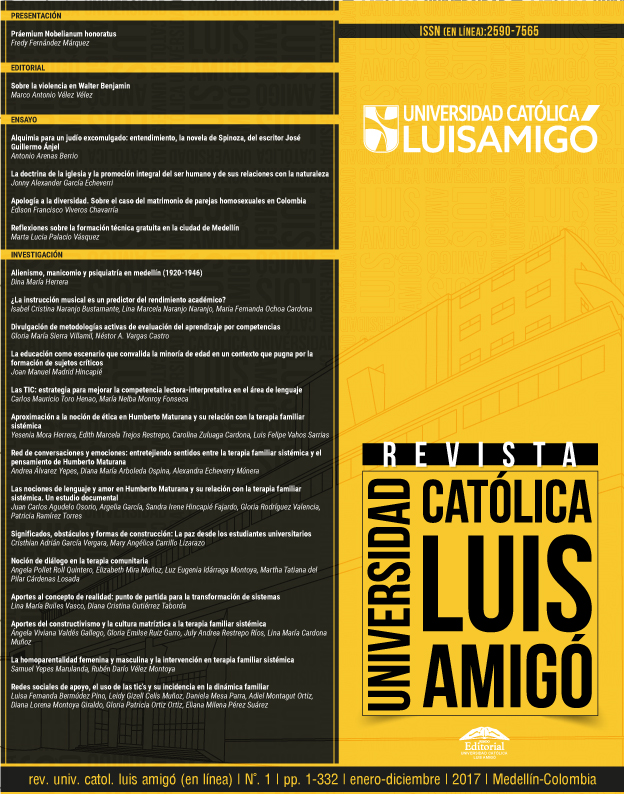Reflections about free technical training in Medellin city
DOI:
https://doi.org/10.21501/25907565.2648Keywords:
Education for work and human development, Scholarships, Technical Training, Opportunity.Abstract
The technical education seeks to train from three major dimensions: being, knowing and doing, prevailing the last one. However, in some institutions of the city of Medellin is wished to do a reflection about how this free education can influence the occupational profile that is put to labour market, because the doing is being relegated for lack of knowing and being, since there is not vocation to study in people who enter in training, what exists is a desire of not losing an opportunity of scholarships, although it is not what they really want to study. The purpose of this reflection is to identify suitable people wishing to study technical scholarship programs, so that the current labor market counts on people who love what they do, and not with technicians who only do so because they did not make the decision of saying no at the appropriate time to a scholarship provided by the departmental Government; also there is a search for an appropriate-profile teacher to this type of scholarship holders so that with their teaching transforms and makes students love technical education.
Downloads
References
Bandura, A. (1987). Teoría del aprendizaje social. Madrid. Editorial Espasa libros.
Ministerio de Educación Nacional. (16 de diciembre de 2009). Articulo 1.2 [Capítulo I]. Decreto 4904. Recuperado de:http://www.mineducacion.gov.co/1621/articles-216551_archivo_pdf_decreto4904.pdf
Ministerio de Educación Nacional. (2008). Guía no. 29: verificación de los requisitos básicos para el funcionamiento de los programas de educación para el trabajo y el desarrollo humano. Recuperado de: http://www.mineducacion.gov.co/1759/articles-157798_archivo_pdf.pdf
Downloads
Published
How to Cite
Issue
Section
License
PROPIEDAD INTELECTUAL
Los autores son moral y legalmente responsables del contenido de sus artículos, así como del respeto a los derechos de autor. Por lo tanto, éstos no comprometen en ningún sentido a la Universidad Católica Luis Amigó.
La reproducción de los artículos se regirá conforme a lo descrito en http://creativecommons.org/licenses/by-nc-sa/4.0/

